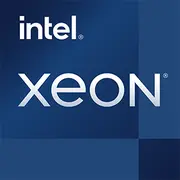Intel Xeon E3-1265L v2

The Intel Xeon E3-1265L v2 processor is a powerful and efficient CPU designed for server use. With its Ivy Bridge architecture and 22 nm technology, this processor offers excellent performance and power efficiency. The E3-1265L v2 features 4 cores and 8 threads, making it capable of handling demanding server workloads with ease.
The base frequency of 2.5 GHz can be boosted up to 3.5 GHz with Intel Turbo Boost technology, providing extra processing power when needed. The processor also comes with 8MB of L3 cache, which allows for quick access to frequently used data, further enhancing its performance.
With a TDP of 45W, the E3-1265L v2 is remarkably power-efficient, making it a great choice for environmentally-conscious server deployments. The integrated Intel HD 2500 graphics offer adequate visuals for server operations, though it may not be suitable for graphic-intensive tasks.
In benchmark tests, the E3-1265L v2 performs admirably, scoring 593 in Geekbench 6 Single Core and 2208 in Geekbench 6 Multi Core tests. Overall, the Intel Xeon E3-1265L v2 is a reliable and high-performance processor that is well-suited for server applications, offering excellent power efficiency and processing capabilities.
Basic
Label Name
Intel
Platform
Server
Launch Date
May 2012
Model Name
?
The Intel processor number is just one of several factors - along with processor brand, system configurations, and system-level benchmarks - to be considered when choosing the right processor for your computing needs.
Xeon E3-1265L v2
Code Name
Ivy Bridge
Foundry
Intel
Generation
Xeon E3 (Ivy Bridge)
CPU Specifications
Total Cores
?
Cores is a hardware term that describes the number of independent central processing units in a single computing component (die or chip).
4
Total Threads
?
Where applicable, Intel® Hyper-Threading Technology is only available on Performance-cores.
8
Performance-core Base Frequency
2.5 GHz
Performance-core Max Turbo Frequency
?
Maximum P-core turbo frequency derived from Intel® Turbo Boost Technology.
3.5 GHz
L1 Cache
64K per core
L2 Cache
256K per core
L3 Cache
8MB shared
Bus Frequency
100MHz
Multiplier
25.0
Unlocked Multiplier
No
CPU Socket
?
The socket is the component that provides the mechanical and electrical connections between the processor and motherboard.
Intel Socket 1155
Technology
?
Lithography refers to the semiconductor technology used to manufacture an integrated circuit, and is reported in nanometer (nm), indicative of the size of features built on the semiconductor.
22 nm
TDP
45 W
PCIe Version
?
PCI Express is a high-speed serial computer expansion bus standard used for connecting high-speed components, replacing older standards such as AGP, PCI, and PCI-X. It has gone through multiple revisions and improvements since its initial release. PCIe 1.0 was first introduced in 2002, and in order to meet the growing demand for higher bandwidth, subsequent versions have been released over time.
3
Transistor Count
1.4 billions
Memory Specifications
Memory Type
?
Intel® processors come in four different types: Single Channel, Dual Channel, Triple Channel, and Flex Mode. Maximum supported memory speed may be lower when populating multiple DIMMs per channel on products that support multiple memory channels.
DDR3
Memory Channels
?
The number of memory channels refers to the bandwidth operation for real world application.
2
ECC Memory Support
Yes
GPU Specifications
Integrated Graphics Model
?
An integrated GPU refers to the graphics core that is integrated into the CPU processor. Leveraging the processor's powerful computational capabilities and intelligent power efficiency management, it delivers outstanding graphics performance and a smooth application experience at a lower power consumption.
Intel HD 2500
Miscellaneous
PCIe Lanes
16
Benchmarks
Geekbench 6
Single Core
Score
593
Geekbench 6
Multi Core
Score
2208
Geekbench 5
Single Core
Score
712
Geekbench 5
Multi Core
Score
2642
Passmark CPU
Single Core
Score
1649
Passmark CPU
Multi Core
Score
5064
Compared to Other CPU
Geekbench 6 Single Core
Geekbench 6 Multi Core
Geekbench 5 Single Core
Geekbench 5 Multi Core
Passmark CPU Single Core
Passmark CPU Multi Core
Share in social media
Or Link To Us
<a href="https://cputronic.com/en/cpu/intel-xeon-e3-1265l-v2" target="_blank">Intel Xeon E3-1265L v2</a>